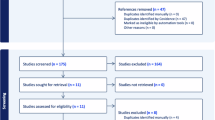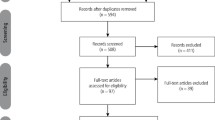Abstract
Data sources
PubMed, Scopus, Web of Science, Embase, Cochrane, Scielo and Lilacs databases were searched from 1980 to March 2016. Literature reviews were explored in order to retrieve any other relevant papers.
Study selection
Randomised controlled studies (RCTs), prospective and before and after studies that applied botulinum toxin (BoNT-A) to the masseter and/or temporalis muscles assessing objective and subjective parameters of bruxism published in English were included.
Data extraction and synthesis
Three reviewers independently assessed for eligibility. Disagreement was solved by discussion and when reaching consensus between at least two. Standard data items were extracted. Quality assessment was assessed using the Cochrane Collaboration's risk of bias tool and the Critical Appraisal Skills Program (CASP) tool. Before–After Study Checklist was used for the nonrandomised studies. Results were presented as a narrative review.
Results
Five studies were included in the review, of those three were RCTs and two before and after. A total of 188 subjects were included. Regimen was unique in each study and the follow-up ranged from two to 24 weeks. The risk of bias of the RCTs was assessed as low to unclear, while the before and after studies were assessed as of moderate risk of bias.
Conclusions
The authors concluded that botulinum toxin represents a possible option for the management of sleep bruxism (SB), minimising symptoms and reducing the intensity of contractions rather than for SB itself.
Similar content being viewed by others
Log in or create a free account to read this content
Gain free access to this article, as well as selected content from this journal and more on nature.com
or
References
Lobbezoo F, Ahlberg J, Glaros AG, et al. Bruxism defined and graded: an international consensus. J Oral Rehabil 2013; 40: 2–4.
Raphael KG, Janal MN, Sirois DA, et al. Validity of self-reported sleep bruxism among myofascial temporomandibular disorder patients and controls. J Oral Rehabil 2015; 42: 751–758. doi:10.1111/joor.12310.
Author information
Authors and Affiliations
Additional information
Address for correspondence: Renata Cunha Matheus Rodrigues Garcia, Department of Prosthodontics and Periodontology, Piracicaba Dental School, University of Campinas, Avenida Limeira, no. 901, Bairro Areiafio, Piracicaba, SP 13414-903, Brazil. E-mail: regarcia@fop.unicamp.br
De la Torre Canales G, Câmara-Souza MB, do Amaral CF, Garcia RC, Manfredini D. Is there enough evidence to use botulinum toxin injections for bruxism management? A systematic literature review. Clin Oral Investig 2017; 21: 727–734. doi: 10.1007/s00784-017-2092-4. Review. PubMed PMID: 28255752.
Rights and permissions
About this article
Cite this article
Kumar, A., Spivakovsky, S. Bruxism- is botulinum toxin an effective treatment?. Evid Based Dent 19, 59 (2018). https://doi.org/10.1038/sj.ebd.6401311
Published:
Issue date:
DOI: https://doi.org/10.1038/sj.ebd.6401311
This article is cited by
-
Effects of different interventions on bruxism: an overview of systematic reviews
Sleep and Breathing (2024)
-
Fractures of implant fixtures: a retrospective clinical study
Maxillofacial Plastic and Reconstructive Surgery (2020)



